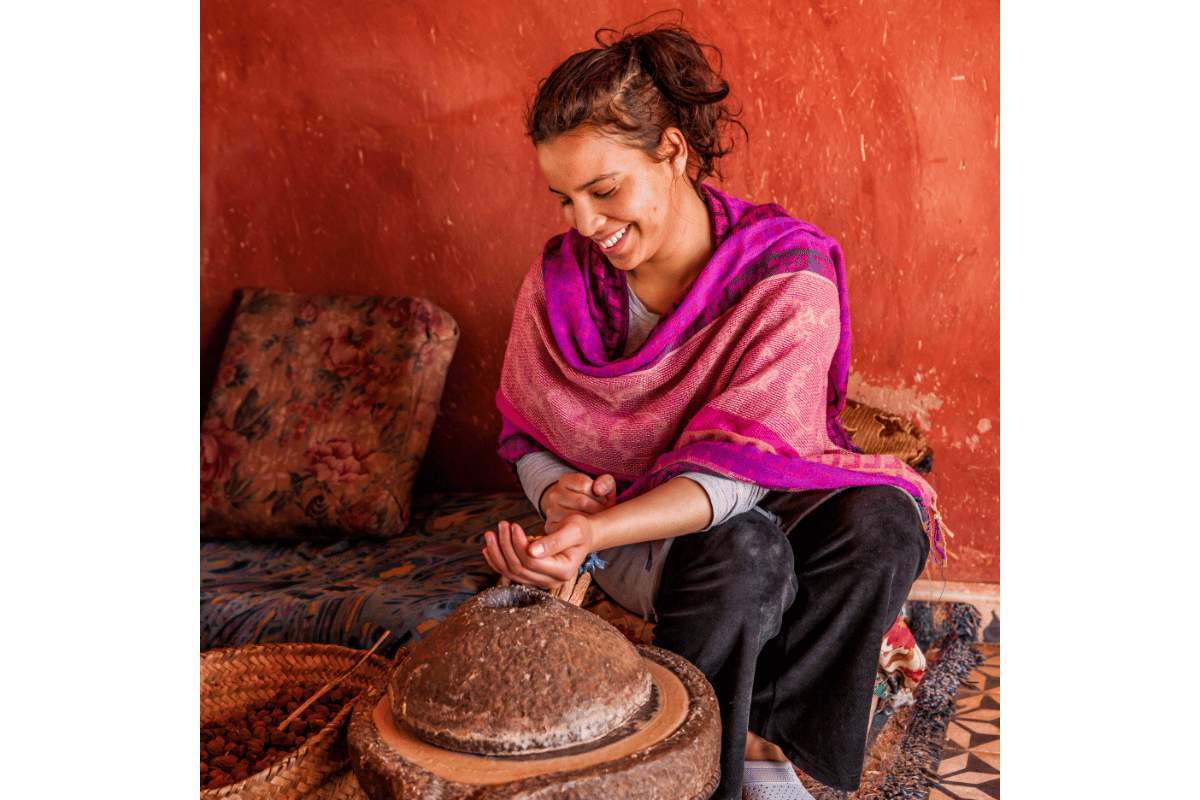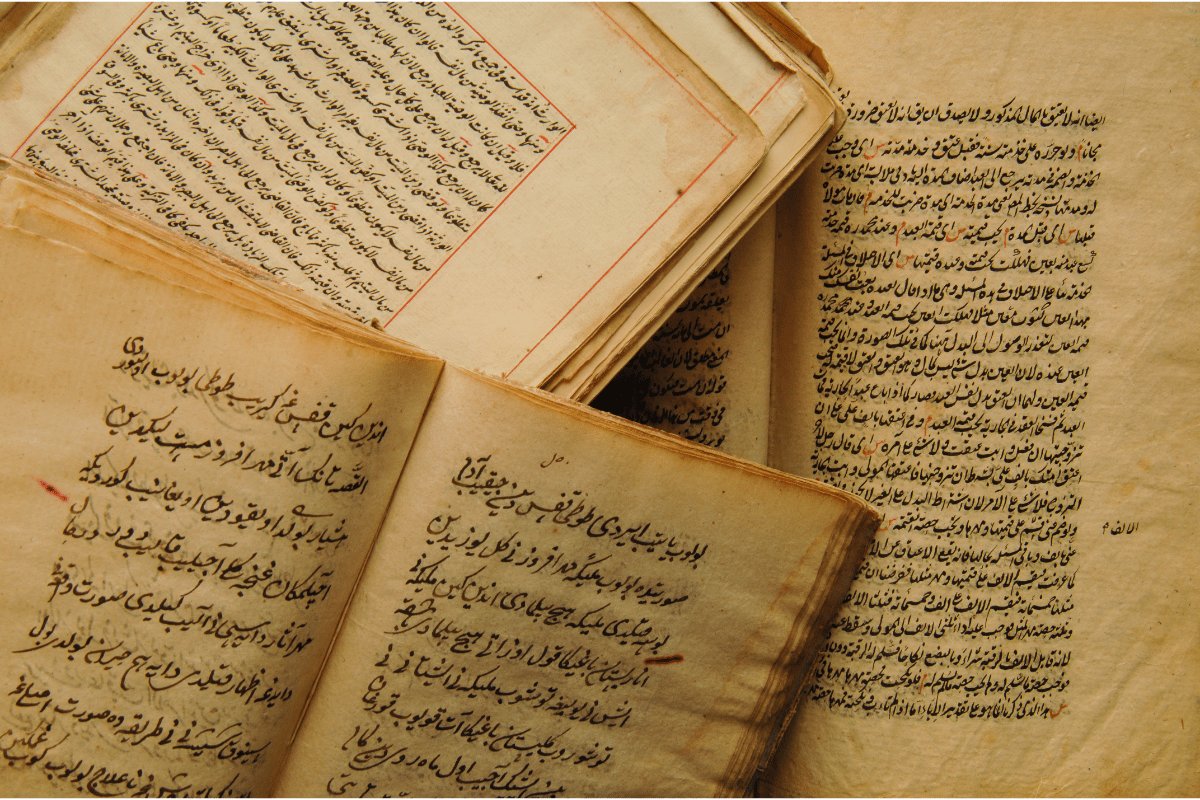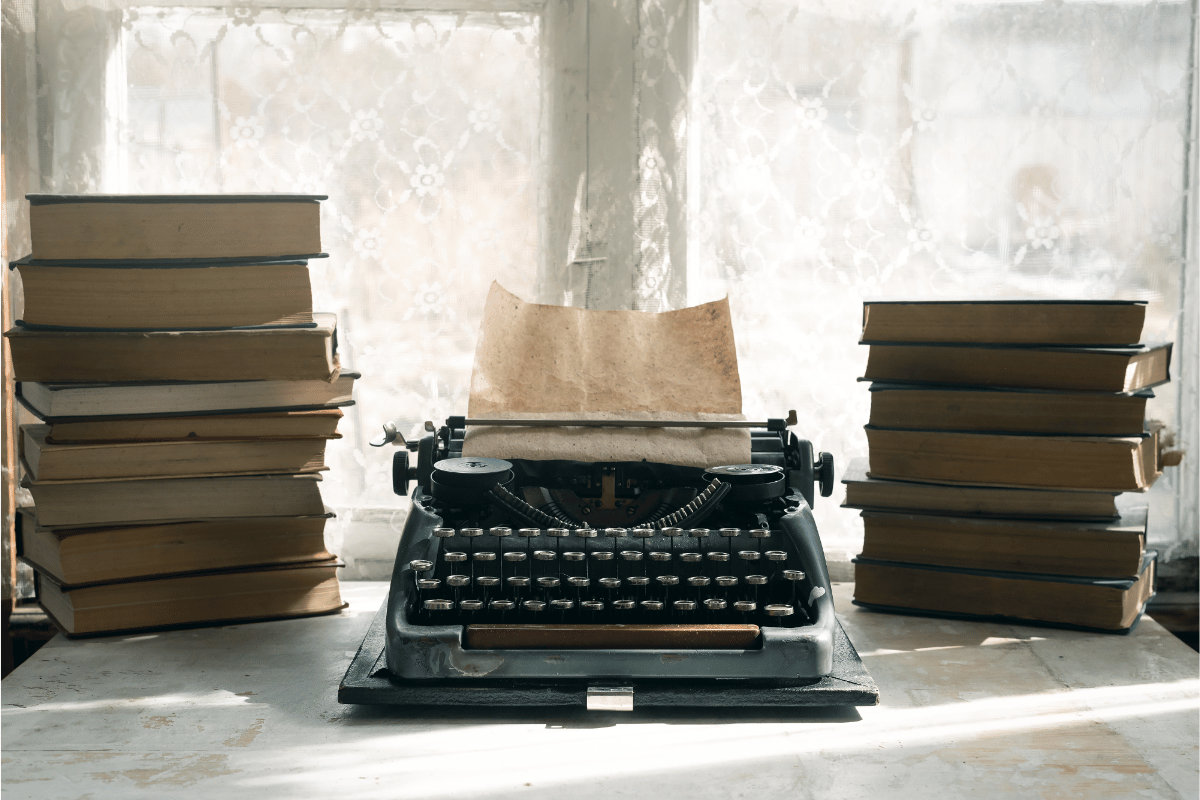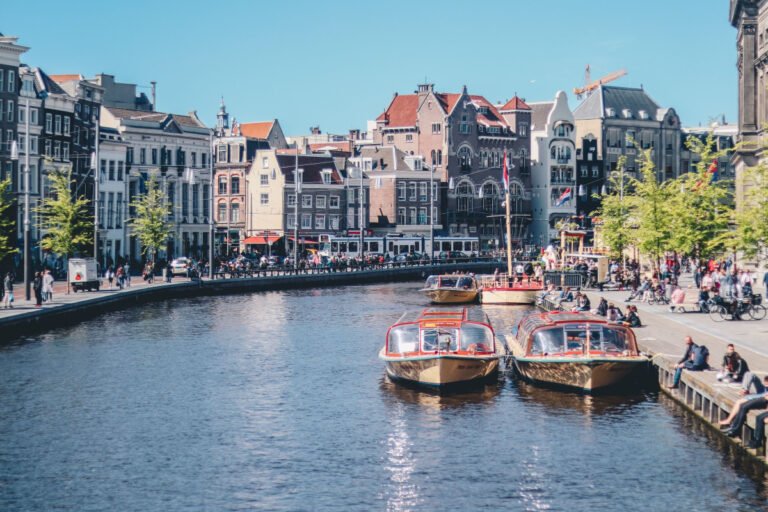In today’s interconnected world, the realm of literature knows no bounds. Moroccan literature, with its rich cultural heritage and diverse themes, has transcended borders to captivate readers from all corners of the globe. This article delves into the exploration of Moroccan cultural themes that resonate universally, sheds light on rising stars in Moroccan literature, examines the impact of technology on Moroccan writers, and ultimately celebrates how they enrich the global literary landscape.
As you embark on this journey through Moroccan literature beyond borders, prepare to be immersed in a world where ancient traditions meet modern sensibilities. The allure lies not only in the captivating storytelling but also in the profound insights into humanity and society that these writers offer. Through their works, they navigate intricate social dynamics, delve into personal narratives shaped by historical events, and shed light on issues such as identity, migration, and gender roles. By analyzing these themes through a scholarly lens, we can gain a deeper understanding of both Morocco’s unique cultural tapestry and our shared human experience.

The emergence of new voices within Moroccan literature is another aspect worth exploring. While established authors continue to make waves internationally with their thought-provoking works, there is an undeniable surge of talented young writers who are redefining the literary landscape. Their fresh perspectives challenge traditional narratives while providing nuanced reflections on contemporary Morocco and its place in a rapidly changing world. By showcasing these rising stars alongside their more established counterparts, we aim to highlight both continuity and innovation within Moroccan literature.
Furthermore, technology has profoundly impacted how Moroccan writers engage with their craft and connect with audiences worldwide. From online platforms that foster literary communities to social media channels that allow for direct engagement between authors and readers, technology has democratized access to literature like never before. It has provided a platform for marginalized voices to be heard while fostering cross-cultural dialogue among readers from various backgrounds.
In conclusion, this article invites you to explore the world of Moroccan literature beyond borders. Through an analytical, scholarly, and interpretive lens, we will delve into the universal appeal of Moroccan cultural themes, celebrate rising stars in the literary scene, examine how technology has transformed the craft of writing, and ultimately appreciate how these writers enrich the global literary landscape. So join us on this journey as we traverse continents and dive deep into the vibrant tapestry that is Moroccan literature.
Key Takeaways
- Moroccan literature explores cultural themes and social dynamics, showcasing cultural preservation and representation for the Moroccan diaspora.
- Technology has profoundly impacted Moroccan writers, providing new avenues to share their work and collaborate with fellow writers globally.
- Rising stars in Moroccan literature, like Laila Lalami, blend history, culture, and personal experiences in their works, exploring themes of identity, immigration, and social justice.
- Translation and international reach have significantly impacted Moroccan literature, transcending language barriers and engaging readers worldwide, introducing them to new voices and styles of writing.

Exploration of Moroccan Cultural Themes
Let’s dive into the fascinating world of Moroccan culture and uncover its rich themes that captivate readers from all around the globe! Moroccan literature goes beyond borders, as it not only provides a window into the country’s cultural preservation but also offers representation for the Moroccan diaspora.
Through its diverse narratives and unique storytelling, this literature showcases the importance of preserving cultural traditions while simultaneously exploring themes that resonate with readers worldwide.
One of the remarkable aspects of Moroccan literature is its commitment to preserving cultural heritage. Authors often draw inspiration from Morocco’s rich history, folklore, and customs, infusing their works with vibrant descriptions and vivid imagery. This focus on cultural preservation serves as a means to celebrate Morocco’s identity and ensure that future generations remain connected to their roots. By incorporating traditional elements such as Berber legends or Sufi mysticism, these writers contribute to a broader understanding and appreciation of Moroccan culture both within and outside its borders.
Additionally, Moroccan literature plays a crucial role in representing the experiences of the Moroccan diaspora. Many Moroccans have migrated to various parts of the world, creating a global community that continues to maintain strong ties with their homeland. Through storytelling, authors shed light on the challenges faced by those living away from Morocco while also highlighting their resilience and strength. This representation helps bridge gaps between cultures and fosters a sense of belonging for individuals who may feel caught between multiple identities.
The universal appeal of Moroccan literature lies in its ability to explore themes that transcend geographical boundaries. While rooted in specific contexts, these stories touch upon universal human experiences such as love, loss, identity struggles, or social injustice. By delving into these topics through the lens of Moroccan culture, authors offer fresh perspectives that resonate with readers regardless of their background or location.
As we transition into discussing the universal appeal of Moroccan literature without taking a step forward like an analytical scholar would do when examining different facets of this literary tradition…
Universal Appeal of Moroccan Literature
Immersed in the vast expanse of readers’ minds, Moroccan literary works possess an irresistible charm that captivates people across diverse cultures and languages. Through their exploration of universal themes and cultural exchange, these literary gems transcend borders and bridge the gap between different societies. Moroccan literature offers a unique perspective on life, drawing readers into a world rich with tradition, history, and human emotions.
To fully appreciate the universal appeal of Moroccan literature, one must recognize its ability to foster cultural exchange. The works of Moroccan writers serve as a gateway for readers to connect with unfamiliar customs, beliefs, and experiences. Whether it’s through vivid descriptions of bustling medinas or heartfelt portrayals of familial bonds, these narratives transport readers to Morocco’s vibrant streets and allow them to immerse themselves in its unique culture. In turn, this exposure to new perspectives fosters understanding and empathy among individuals from various backgrounds.
Another reason for the widespread popularity of Moroccan literature lies in its literary diversity. From poetry to novels and short stories, Moroccan writers showcase their creativity through various genres and styles. This diversity not only appeals to readers with different preferences but also contributes to the richness and depth of the country’s literary landscape. Each writer brings their own unique voice and storytelling techniques to the table, offering readers an array of narratives that explore both personal struggles and societal issues.
The universal appeal of Moroccan literature can be attributed to its portrayal of fundamental human emotions that resonate with people regardless of their cultural background. Love, loss, hope, and despair are all explored within these pages in ways that evoke genuine emotional responses from readers worldwide. By delving into shared experiences through relatable characters or thought-provoking plots, Moroccan authors create a common ground where individuals can connect despite differences in language or culture.
As we delve into the rising stars in Moroccan literature who continue this legacy beyond borders (without writing ‘step’), it’s important to acknowledge how their predecessors have laid a solid foundation. The universal appeal of Moroccan literature serves as a testament to the power of storytelling and the ability of words to transcend cultural boundaries. Through their exploration of cultural exchange, literary diversity, and fundamental human emotions, Moroccan writers have captured the hearts and minds of readers worldwide, leaving an indelible mark on the global literary sphere.
Rising Stars in Moroccan Literature
Discover the captivating voices of these emerging talents, whose stories will transport you to new worlds and leave your heart yearning for more.
Moroccan literature is experiencing a renaissance with the rise of upcoming talent that’s making waves both locally and internationally. These writers bring fresh perspectives and unique storytelling techniques that captivate readers from all walks of life. They’re redefining the literary landscape, drawing inspiration from their cultural heritage while embracing global literary influences.
One such rising star in Moroccan literature is Laila Lalami, whose works have garnered critical acclaim and international recognition. Lalami’s writing explores themes of identity, immigration, and social justice through powerful narratives that resonate with readers worldwide. Her novel ‘The Moor’s Account’ received wide praise for its exploration of historical events from the perspective of an enslaved African Muslim during the Spanish conquest of America. Lalami’s ability to seamlessly blend history, culture, and personal experiences showcases her immense talent as a storyteller.
Another promising talent is Mohammed Achaari, an award-winning poet and novelist who’s made significant contributions to Moroccan literature. Achaari’s poetry delves into themes of love, loss, and political strife with a lyrical style that mesmerizes readers. His novel ‘The Arch and The Butterfly’ tells a poignant tale about memory, forgiveness, and redemption against the backdrop of Morocco’s complex sociopolitical landscape. Achaari’s ability to intertwine personal narratives with larger societal issues makes him an influential voice in contemporary Moroccan literature.
These emerging talents draw inspiration from various sources, blending traditional Moroccan storytelling techniques with modern literary influences from around the world. Their works reflect a rich tapestry of cultures and ideas that transcend borders and resonate with readers globally. By weaving together diverse narratives rooted in their own experiences while incorporating universal themes such as love, identity, and social justice, these writers create stories that appeal to people across different backgrounds.
As technology continues to shape our lives in unprecedented ways, it’s also had a profound impact on Moroccan writers. The internet and social media platforms have provided them with new avenues to share their work, connect with readers, and collaborate with fellow writers from around the world. Online literary communities have flourished, allowing emerging talents to gain visibility and recognition that was previously limited to traditional publishing channels. This digital revolution has not only expanded the reach of Moroccan literature but also fostered a vibrant exchange of ideas and perspectives among writers globally.
Transitioning into the subsequent section about the impact of technology on Moroccan writers, it’s evident that advancements in technology have revolutionized the way authors create, publish, and promote their works. From online literary journals to self-publishing platforms, technology has empowered Moroccan writers to navigate the global sphere with ease. However, as these opportunities arise, challenges such as copyright infringement and information overload also emerge. Despite these hurdles, Moroccan literature continues to thrive in the digital age, bridging cultures and captivating audiences around the world.
Impact of Technology on Moroccan Writers
You can’t deny the impact technology has had on Moroccan writers. It’s like they’ve been thrown into a digital whirlwind, spinning faster and faster as they try to navigate the ever-changing landscape of online publishing and promotion.
With the rise of digital platforms, Moroccan writers now have unprecedented access to global audiences. They can share their work with people from all corners of the world at the click of a button. This instant connectivity has opened up new avenues for creativity and collaboration.
Online publishing has revolutionized how Moroccan writers distribute their work. Gone are the days when they had to rely solely on traditional publishers to reach readers. Now, they can self-publish their books or share their stories through blogs and social media platforms. This democratization of publishing has allowed talented but previously overlooked writers to showcase their work without barriers or gatekeepers. The internet has become a literary marketplace where Moroccan voices can shine.
Furthermore, technology has also enabled Moroccan writers to connect with each other and form vibrant communities online. They can exchange ideas, offer feedback, and support one another’s creative endeavors through forums, writing groups, and virtual workshops. These connections not only enrich their own writing journeys but also contribute to a collective growth in Moroccan literature as a whole.
Technology has undoubtedly transformed the landscape for Moroccan writers by providing them with digital platforms for publishing and promoting their work globally. It has empowered them to take control of their own narratives and reach wider audiences than ever before.
As we delve further into how this technological revolution is enriching the global literary landscape…
Enriching the Global Literary Landscape
In this discussion, we’ll explore how technology has enriched the global literary landscape for Moroccan writers.
Firstly, translation and international reach have been significantly impacted by advancements in technology, allowing Moroccan literature to be accessible to a wider audience beyond borders.
Additionally, Moroccan literature festivals and events have also played a crucial role in showcasing the diverse literary talent of the country on an international stage.
Translation and International Reach
Step into the world of Moroccan literature and witness how translation and international reach have propelled writers beyond borders. Through the process of translation, Moroccan literary works have been able to transcend language barriers and engage in a cultural exchange with readers from around the globe. This cross-cultural dialogue not only allows for a greater appreciation of Moroccan literature but also enriches the global literary landscape as a whole.
Discover the intricacies of Moroccan culture through translated works: Translations provide readers with an opportunity to delve into the rich tapestry of Moroccan culture, exploring its traditions, history, and social dynamics. By bringing these narratives to an international audience, translation fosters a deeper understanding and appreciation for Morocco’s literary heritage.
Foster connections between diverse communities: The translation of Moroccan literature creates a platform for dialogue between different cultures and communities. As readers engage with these translated works, they gain insights into perspectives that may be unfamiliar or different from their own. This fosters empathy and understanding across borders, promoting a more interconnected global society.
Expand literary horizons: Translation introduces readers to new voices and styles of writing that may not have been accessible otherwise. By broadening our literary horizons, we’re exposed to fresh ideas, alternative narrative structures, and unique storytelling techniques that challenge our preconceptions about literature.
Promote cultural diversity in publishing: The international reach of translated Moroccan literature encourages publishers to embrace diverse voices in their catalogs. By showcasing authors from different backgrounds and regions, publishers contribute to a more inclusive representation of global narratives within the publishing industry.
Encourage collaboration among translators: The process of translating Moroccan literature requires collaboration between writers and translators who work together to capture the essence of the original text. This collaborative effort fosters creativity and innovation in translation practices while ensuring that cultural nuances are accurately conveyed.
Transitioning into the subsequent section about ‘Moroccan Literature Festivals and Events’, one can see how these platforms further promote cross-cultural dialogue and celebrate the diversity of Moroccan literary works.
Moroccan Literature Festivals and Events
Immerse yourself in the vibrant world of Moroccan literary festivals and events, where cultural exchange and celebration of diverse narratives take center stage. These gatherings serve as platforms for writers and readers from around the globe to come together and engage in a rich tapestry of ideas, perspectives, and stories.
Through literary exchange, these festivals promote cross-cultural dialogue, fostering a deeper understanding of Moroccan literature beyond borders.
One such prominent event is the International Marrakech Biennale, which showcases not only literature but also visual arts, music, and film. This multidisciplinary festival attracts renowned authors from Morocco and abroad who participate in panel discussions, readings, book signings, and workshops. By bringing together artists from different backgrounds and disciplines, this festival cultivates an environment conducive to meaningful cultural exchanges.
Another notable literary event is the Casablanca Book Fair. Held annually since 1994, it has become a staple in the Moroccan literary scene. This fair offers a platform for publishers to showcase their latest releases while providing an opportunity for readers to discover new voices in Moroccan literature. The fair also hosts conferences on various topics related to writing and publishing industry trends.
These festivals not only celebrate Moroccan literature but also contribute to its growth by exposing it to international audiences. They provide a space where diverse voices can be heard and acknowledged while promoting cross-cultural dialogue that enriches both local and global literary landscapes.
So whether you’re an avid reader or an aspiring writer seeking inspiration, these Moroccan literary festivals offer an immersive experience that will leave you with a deep appreciation for the power of storytelling across borders.

Examples of Renown Moroccan Writers
While Morocco has a rich tradition of literature, many Moroccan writers primarily produce their works in Arabic or French due to the country’s multilingualism, which includes Arabic, Amazigh, and French. However, a growing number of Moroccan writers are creating works in English, or having their works translated into English, to reach a broader audience. Here’s a list of Moroccan writers who either write in English or have significant portions of their work available in English translation:
- Laila Lalami – Born and raised in Morocco, Lalami writes primarily in English. She is a Pulitzer Prize finalist and recipient of the American Book Award. Her notable works include “Hope and Other Dangerous Pursuits” and “The Moor’s Account”.
- Abdellah Taïa – Although he writes primarily in French, many of his works have been translated into English. He is known for being one of the first openly gay Arab writers, and his books often deal with themes of sexuality and identity.
- Fatema Mernissi – A sociologist and one of the founding mothers of Islamic feminism, Mernissi wrote in French and Arabic, but many of her works are available in English. Her most notable works include “Beyond the Veil” and “Dreams of Trespass”.
- Tahar Ben Jelloun – A prolific writer who writes primarily in French. Many of his works, which often explore themes of immigration and Moroccan culture, have been translated into English. His most famous works include “The Sand Child” and “This Blinding Absence of Light”.
- Driss Chraïbi – Although his main medium is French, several of his novels have been translated into English. His books often tackle themes of colonialism and identity. His well-known works include “The Simple Past” and “Heirs to the Past”.
- Leïla Slimani – Born in Rabat, Morocco, Slimani is a French-Moroccan writer whose novels have been translated into English. Her best-known work, “Lullaby”, won the Prix Goncourt in 2016.
- Youssef Fadel – A Moroccan novelist and playwright, Fadel’s works have been translated into several languages including English. His work often reflects the sociopolitical dynamics of Morocco.
- Najat El Hachmi – Originally writing in Catalan, her works have been translated into more than twenty languages including English. Her most famous work, “The Last Patriarch”, was awarded the Ramon Llull Prize and the Prix Ulysse.
- Anouar Majid – Majid writes in English and is known for his work as a novelist, critic, and public intellectual. His novels include “Tinghir-Jerusalem” and “Unveiling Traditions”.
- Mahi Binebine – Originally writing in French, his works have been translated into numerous languages including English. His novels often depict life in Morocco, such as “Welcome to Paradise” and “Horses of God”.
Please note that English translations for some of these authors may not always fully capture the nuance and cultural contexts of the original language.
Frequently Asked Questions
How does the exploration of Moroccan cultural themes in literature contribute to a deeper understanding of Moroccan society?
Exploring Moroccan cultural themes in literature deepens your understanding of Moroccan society by delving into the complexities of cultural identity and its impact on social change.
What are some examples of Moroccan literary works that have gained international recognition and why do they have universal appeal?
To visualize the truth, examine Moroccan literary works with international recognition. These works, like Leila Abouzeid’s “Year of the Elephant,”captivate readers through their exploration of universal themes such as oppression and resilience.
Who are some emerging Moroccan writers that are making a significant impact in the literary world?
Emerging Moroccan writers in the literary world, such as Laila Lalami and Tahar Ben Jelloun, are making a significant impact. Their works explore Moroccan society and address issues like identity, migration, and social justice, resonating with readers globally.
How has the advancement of technology affected the writing process and creative output of Moroccan writers?
The advancement of technology has greatly impacted the writing process and creative output of Moroccan writers. Social media has provided a platform for them to reach wider audiences, while digital publishing has made it easier to share and distribute their work.
In what ways does Moroccan literature enrich the global literary landscape and promote cross-cultural understanding?
Moroccan literature enriches the global literary landscape by promoting cultural exchange and cross-cultural understanding. The impact of translation on its global reach cannot be overlooked, as it allows Moroccan voices to resonate across borders.
Conclusion
In conclusion, the exploration of Moroccan cultural themes in literature has proven to be a captivating journey that transcends borders. The universal appeal of Moroccan literature lies in its ability to convey the human experience and connect with readers from diverse backgrounds.
As demonstrated by rising stars such as Laila Lalami and Tahar Ben Jelloun, Moroccan writers have made a significant impact on the global literary sphere.
One interesting statistic that highlights this impact is the growing number of translations of Moroccan works. According to a recent study conducted by the Translation Database at TranslationStudies.com, there’s been a 30% increase in translations of Moroccan literature into multiple languages over the past decade. This surge in translation activity reflects both the recognition and demand for Moroccan voices in world literature.
The rise of technology has also played a crucial role in shaping the landscape for Moroccan writers. With advancements in digital platforms and social media, authors now have greater opportunities to reach wider audiences and engage with readers across continents. This hasn’t only allowed for increased exposure but has also fostered dialogue and exchange between cultures.
Overall, Moroccan literature continues to enrich the global literary landscape through its exploration of cultural themes, universal appeal, talented emerging writers, and adaptation to technological advancements.
As readers around the world continue to seek diverse stories that resonate with their own experiences, it’s clear that Morocco’s rich literary tradition will continue to captivate hearts and minds beyond borders.

The Editorial Team is a passionate group of Morocco enthusiasts dedicated to sharing the beauty, culture, and wonders of this captivating country. With diverse backgrounds and a deep love for travel, we strive to bring you engaging and informative content that inspires your Moroccan adventures. From uncovering hidden gems and sharing local insights to exploring mouthwatering cuisine and showcasing the vibrant lifestyle, our team is committed to providing you with valuable resources and exciting stories that enhance your exploration of Morocco. Join us on this journey as we celebrate the rich heritage and unforgettable experiences that make Morocco truly special.



